Preparing for Your IQ Test: Essential Steps and Strategies You Need to Know
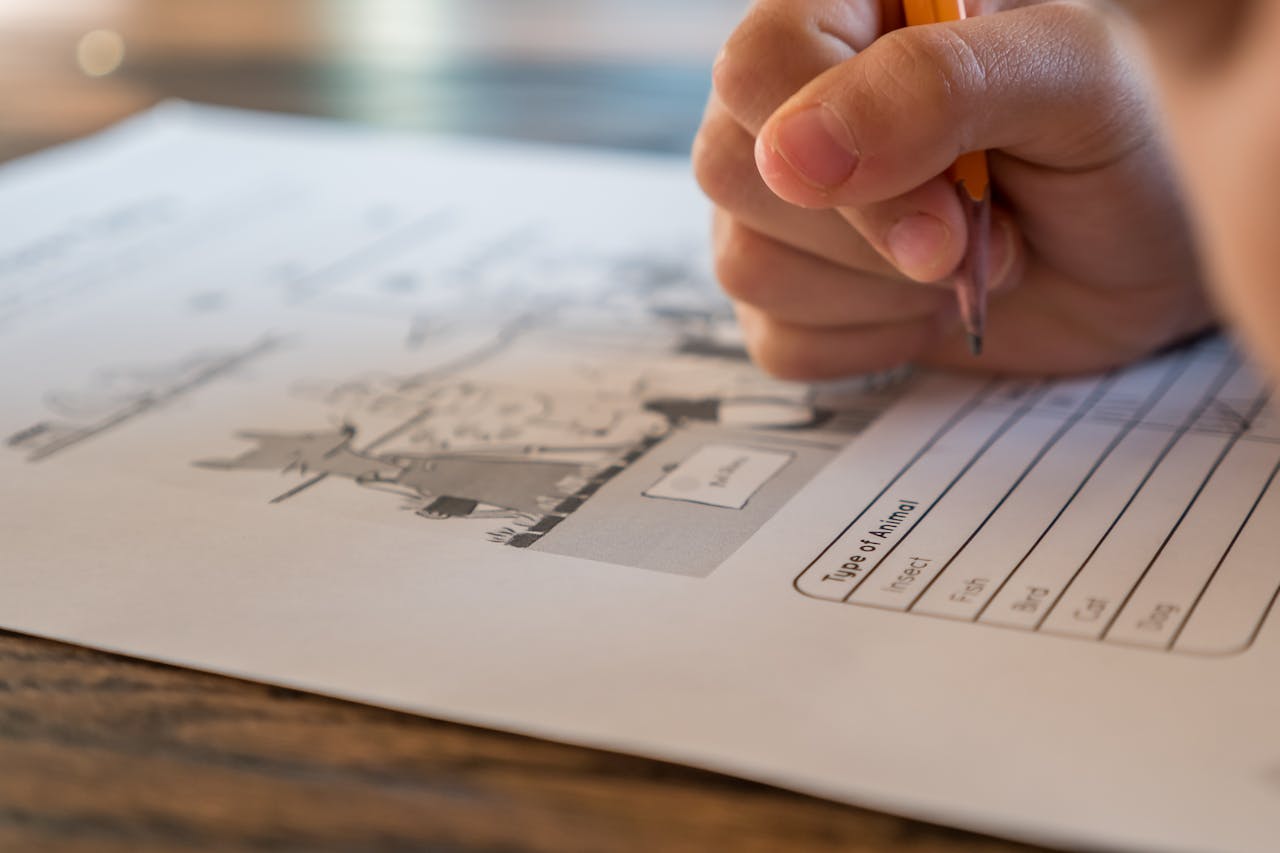
Are you ready to unlock the mysteries of your mind? Whether you’re gearing up for an academic evaluation, a job application, or simply curious about your cognitive abilities, preparing for an IQ test can feel daunting. But fear not. With the right strategies and essential steps, you can approach this challenge with confidence and poise. In this blog post, we’ll unveil handy tips that will help you maximize your potential and turn preparation into an exciting journey of self-discovery. So grab a notebook and get comfy—let’s dive into the world of intelligence testing and set you on the path to success.
Understanding the Types of IQ Tests
 IQ tests come in various formats, each designed to measure different aspects of intelligence. Some tests emphasize verbal abilities, evaluating your vocabulary, comprehension, and reasoning skills through language. Other assessments focus on quantitative skills. These tests challenge participants with mathematical problems and logical reasoning tasks that require numerical understanding.
IQ tests come in various formats, each designed to measure different aspects of intelligence. Some tests emphasize verbal abilities, evaluating your vocabulary, comprehension, and reasoning skills through language. Other assessments focus on quantitative skills. These tests challenge participants with mathematical problems and logical reasoning tasks that require numerical understanding.
Spatial intelligence is another area explored by specific IQ tests online. This type assesses how well individuals can visualize and manipulate objects in space. Tasks may include puzzles or pattern recognition exercises.
Before the Test: Mental Preparation and Setting Realistic Expectations
Preparing mentally for your IQ test is just as crucial as the knowledge you bring. Start by familiarizing yourself with the types of questions you’ll encounter. This knowledge can significantly reduce anxiety. Next, set realistic expectations. Many people feel pressure to perform exceptionally well, but remember that an IQ score is just one measure of intelligence. Focus on doing your best rather than stressing over a specific number. Visualization techniques can also be beneficial. Picture yourself calmly answering questions and maintaining focus throughout the test. This mental rehearsal can enhance your confidence. Finally, practice positive self-talk leading up to the exam day. Replace negative thoughts with affirmations about your abilities and preparation efforts. You have done the work; trust yourself to demonstrate what you know when it counts most.
Physical Preparation: Tips for a Good Night’s Sleep and a Healthy Breakfast
 Your body and mind must be in peak condition for an IQ test. A good night’s sleep is crucial. Aim for 7-9 hours of quality rest the night before. Create a calming bedtime routine, like reading or meditating, to help you wind down. Limit screen time as your test approaches. Blue light can interfere with melatonin production, making it harder to fall asleep.
Your body and mind must be in peak condition for an IQ test. A good night’s sleep is crucial. Aim for 7-9 hours of quality rest the night before. Create a calming bedtime routine, like reading or meditating, to help you wind down. Limit screen time as your test approaches. Blue light can interfere with melatonin production, making it harder to fall asleep.
When morning arrives, don’t skip breakfast. Fueling your brain with nutritious food is essential. Choose whole grains, fruits, and proteins that provide sustained energy without a sugar crash later. Stay hydrated, too. Water boosts cognitive function and keeps you alert during the test.
During the Test: Strategies for Success, Including Time Management and Question Types
When the test begins, stay calm. Take a deep breath to center your thoughts. Anxiety can cloud your judgment. Time management is crucial. Quickly skim through all questions to gauge their difficulty and allocate time accordingly. Tackle easier ones first to build momentum. Pay attention to question types. Before the day arrives, familiarize yourself with verbal reasoning, numerical sequences, and pattern recognition. Each type requires a different approach; adapt as needed.
If you encounter a challenging question, don’t dwell on it for too long. Mark it and move on—returning later might yield insights you didn’t have at first glance. Remember, clarity counts in multiple-choice formats: read each option carefully before selecting an answer. Sometimes, the most straightforward choice is the correct one.
After the Test: How to Reflect on Your Performance and Use It to Improve
Once the test is behind you, take a moment to breathe. It’s natural to feel a mix of relief and curiosity about your results. Reflect on your performance calmly. Consider which areas felt challenging and where you excelled. This insight can guide your future study habits. Create a list of questions that puzzled you during the test. …


 One of the immediate benefits of making your bed is the sense of accomplishment it provides. Completing this small task first thing in the morning sets a positive tone for the day ahead. It signals to your brain that you are capable of taking on and completing tasks, no matter how small they may seem.
One of the immediate benefits of making your bed is the sense of accomplishment it provides. Completing this small task first thing in the morning sets a positive tone for the day ahead. It signals to your brain that you are capable of taking on and completing tasks, no matter how small they may seem.
 In conclusion, making your bed each morning may seem like a small and insignificant task, but the psychological benefits are anything but trivial. From a sense of accomplishment to reduced stress levels and improved mood, this simple act of self-care can have a profound impact on your mental well-being. So, tomorrow morning, take a few extra minutes to straighten those sheets and fluff those pillows—you’ll be glad you did.…
In conclusion, making your bed each morning may seem like a small and insignificant task, but the psychological benefits are anything but trivial. From a sense of accomplishment to reduced stress levels and improved mood, this simple act of self-care can have a profound impact on your mental well-being. So, tomorrow morning, take a few extra minutes to straighten those sheets and fluff those pillows—you’ll be glad you did.…








 In the past, people typically met their romantic partners through friends, family, or at work. However, with the rise of technology, people can now meet their partners online through dating apps and websites. This has increased the accessibility of potential partners, as people are no longer limited to meeting people in their immediate vicinity. Additionally, online dating provides a larger pool of potential partners than traditional methods, which gives users more choices and increases the chances of finding a compatible partner.
In the past, people typically met their romantic partners through friends, family, or at work. However, with the rise of technology, people can now meet their partners online through dating apps and websites. This has increased the accessibility of potential partners, as people are no longer limited to meeting people in their immediate vicinity. Additionally, online dating provides a larger pool of potential partners than traditional methods, which gives users more choices and increases the chances of finding a compatible partner. Finally, technology has changed the expectations people have when it comes to
Finally, technology has changed the expectations people have when it comes to 
 You’re on the right track if you’re working hard to pay off your debts. As you progress and see your debt decreasing, you’ll feel more empowered and motivated to continue.
You’re on the right track if you’re working hard to pay off your debts. As you progress and see your debt decreasing, you’ll feel more empowered and motivated to continue. Earning more money is always good, but it’s especially important when working towards your financial goals.
Earning more money is always good, but it’s especially important when working towards your financial goals.
 A picnic meal in the park is a wonderful way to liven up your date night for people who appreciate the beauty of the outdoors. It’s a terrific way to spend time outside and get some fresh air, as well as a fun and original way to share a meal. Try carrying some of your favorite dishes and beverages for your picnic meal to make it more special. Also, don’t forget to include a few blankets for comfort.
A picnic meal in the park is a wonderful way to liven up your date night for people who appreciate the beauty of the outdoors. It’s a terrific way to spend time outside and get some fresh air, as well as a fun and original way to share a meal. Try carrying some of your favorite dishes and beverages for your picnic meal to make it more special. Also, don’t forget to include a few blankets for comfort.
 Who says you can’t have breakfast items for dinner? Why not try eating breakfast for dinner if you and your spouse are searching for a fun and original approach to spice up your date night? You could, for instance, try preparing some pancakes. Consider adding some of your favorite fruits or even chocolate chips to the top. Waffles can also be served with a scoop of ice cream or a dab of whipped cream. But if you prefer the decadent French toast, give your toast a flavor boost by incorporating a small amount of cinnamon or nutmeg into the batter. You can top it with syrup, jelly, or even some icing sugar.
Who says you can’t have breakfast items for dinner? Why not try eating breakfast for dinner if you and your spouse are searching for a fun and original approach to spice up your date night? You could, for instance, try preparing some pancakes. Consider adding some of your favorite fruits or even chocolate chips to the top. Waffles can also be served with a scoop of ice cream or a dab of whipped cream. But if you prefer the decadent French toast, give your toast a flavor boost by incorporating a small amount of cinnamon or nutmeg into the batter. You can top it with syrup, jelly, or even some icing sugar.




 One of the reasons you should be eating hemp seeds every day is because they’re an easy-to-digest protein source. Hemp seeds are a great option if you’re looking for a plant-based protein that’s easy on your stomach. Hemp seeds contain all 20 amino acids, including the nine essential amino acids our bodies can’t produce independently. This makes them a complete protein source, which is rare for plant-based foods. Hemp seeds are also a good source of omega-three fatty acids, which are essential for maintaining heart health and preventing chronic diseases.
One of the reasons you should be eating hemp seeds every day is because they’re an easy-to-digest protein source. Hemp seeds are a great option if you’re looking for a plant-based protein that’s easy on your stomach. Hemp seeds contain all 20 amino acids, including the nine essential amino acids our bodies can’t produce independently. This makes them a complete protein source, which is rare for plant-based foods. Hemp seeds are also a good source of omega-three fatty acids, which are essential for maintaining heart health and preventing chronic diseases. Hemp seeds are also great for your skin. The hemp seeds’ fatty acids can help moisturize the skin and prevent dryness. In addition, hemp seeds are a good source of vitamin E, an antioxidant that helps protect the skin from damage. Eating hemp seeds daily is an excellent option if you’re looking for a natural way to improve your skin health.
Hemp seeds are also great for your skin. The hemp seeds’ fatty acids can help moisturize the skin and prevent dryness. In addition, hemp seeds are a good source of vitamin E, an antioxidant that helps protect the skin from damage. Eating hemp seeds daily is an excellent option if you’re looking for a natural way to improve your skin health.

 To make a difference in your community, consider recruiting volunteers for your cause. Volunteers can provide assistance with various tasks, from helping run events and fundraisers to providing administrative support. There are a few things to keep in mind when recruiting volunteers:
To make a difference in your community, consider recruiting volunteers for your cause. Volunteers can provide assistance with various tasks, from helping run events and fundraisers to providing administrative support. There are a few things to keep in mind when recruiting volunteers:
 One of the most popular ways to make money in the fitness industry is becoming a personal trainer. Personal trainers help their clients reach their fitness goals by designing customized workout plans and providing one-on-one coaching. This is an excellent career for people passionate about helping others achieve their fitness goals. There are a few things to keep in mind if you’re considering becoming a personal trainer. First, you will need to get certified. Once you have your certification, it’s essential to build up a solid client base.
One of the most popular ways to make money in the fitness industry is becoming a personal trainer. Personal trainers help their clients reach their fitness goals by designing customized workout plans and providing one-on-one coaching. This is an excellent career for people passionate about helping others achieve their fitness goals. There are a few things to keep in mind if you’re considering becoming a personal trainer. First, you will need to get certified. Once you have your certification, it’s essential to build up a solid client base. Opening your gym is a great way to make money in the fitness industry. This is a perfect option if you’re looking for a long-term career in the fitness industry. When you own your gym, you have complete control over the business and can decide what services to offer and how to run the business. Of course, opening your gym is a big undertaking. You will need to have a strong business plan and enough capital to get the business off the ground. You will also need to effectively market your gym so that people will want to come and use your services.
Opening your gym is a great way to make money in the fitness industry. This is a perfect option if you’re looking for a long-term career in the fitness industry. When you own your gym, you have complete control over the business and can decide what services to offer and how to run the business. Of course, opening your gym is a big undertaking. You will need to have a strong business plan and enough capital to get the business off the ground. You will also need to effectively market your gym so that people will want to come and use your services.
 This region is home to many manufacturing businesses. However, there are also sectors such as tourism that benefit from the historical aspects of the area. Within this context, it’s possible to find all sorts of niche markets that can be very profitable if you know how to exploit them. The North of England is also a great place to develop green technologies. Many initiatives support this type of business, and the region has a lot of natural resources which you can use to create new products and services.
This region is home to many manufacturing businesses. However, there are also sectors such as tourism that benefit from the historical aspects of the area. Within this context, it’s possible to find all sorts of niche markets that can be very profitable if you know how to exploit them. The North of England is also a great place to develop green technologies. Many initiatives support this type of business, and the region has a lot of natural resources which you can use to create new products and services. The North of England is a great place to grow your business. Many incentives can help you to achieve this goal. For example, the region has a robust financial sector. You will be able to take advantage of lower living costs, leading you to better savings or more disposable income! In addition, there are plenty of government initiatives, such as the Enterprise Growth Fund, which can help you grow your business. You will be able to take advantage of funding and support networks in the North of England.
The North of England is a great place to grow your business. Many incentives can help you to achieve this goal. For example, the region has a robust financial sector. You will be able to take advantage of lower living costs, leading you to better savings or more disposable income! In addition, there are plenty of government initiatives, such as the Enterprise Growth Fund, which can help you grow your business. You will be able to take advantage of funding and support networks in the North of England.
 If you are playing a word game but constantly losing to opponents, you should use word unscrambler to improve your ability. This tool can help you find all possible words that match your letters. With enough practice, you will surely beat your opponents next time.
If you are playing a word game but constantly losing to opponents, you should use word unscrambler to improve your ability. This tool can help you find all possible words that match your letters. With enough practice, you will surely beat your opponents next time. Word unscrambler also allows you to create word games or quizzes. This is a great way to test your skills and see how well you know the words that have been presented to you. It can also be a teaching tool for educators who want to help their students learn more about language and its many complexities.
Word unscrambler also allows you to create word games or quizzes. This is a great way to test your skills and see how well you know the words that have been presented to you. It can also be a teaching tool for educators who want to help their students learn more about language and its many complexities.
 When you improve your sex hormone levels, without a doubt, your sexual desire will increase. Some men have issues with low libido, and it affects their relationship with their sexual partners. It also impacts their social life.
When you improve your sex hormone levels, without a doubt, your sexual desire will increase. Some men have issues with low libido, and it affects their relationship with their sexual partners. It also impacts their social life. No matter how much time you spend in the gym or working out, you will not realize the gains if your testosterone levels are low. You will notice a loss of muscle as you age due to the decline in the T-hormone level. However, all is not lost because using T-boosters can reverse the situation, and you even find yourself developing more muscle to have a well-built body.
No matter how much time you spend in the gym or working out, you will not realize the gains if your testosterone levels are low. You will notice a loss of muscle as you age due to the decline in the T-hormone level. However, all is not lost because using T-boosters can reverse the situation, and you even find yourself developing more muscle to have a well-built body.


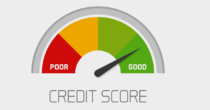
 If you are looking to secure a loan, you stand a higher chance of getting approved with a good credit score. Not only will your loan be approved, but you will also get to enjoy lower interest rates, thus saving you money. In addition, you get access to higher amounts of money while taking up a loan. A good credit score shows the bank that you can maintain the money they give you and repay it on time.
If you are looking to secure a loan, you stand a higher chance of getting approved with a good credit score. Not only will your loan be approved, but you will also get to enjoy lower interest rates, thus saving you money. In addition, you get access to higher amounts of money while taking up a loan. A good credit score shows the bank that you can maintain the money they give you and repay it on time. Whether you are looking to rent an apartment or buy a house, your credit score will determine how much it will cost. Landlords are looking for tenants with good credit scores. Like banks, landlords want to ensure that their tenants can pay their rent on time. You also stand a better chance of securing a mortgage, and the amount approved will be higher. More money for a mortgage means getting a better house.
Whether you are looking to rent an apartment or buy a house, your credit score will determine how much it will cost. Landlords are looking for tenants with good credit scores. Like banks, landlords want to ensure that their tenants can pay their rent on time. You also stand a better chance of securing a mortgage, and the amount approved will be higher. More money for a mortgage means getting a better house.


 Doctors have a vast knowledge of the best pills for increasing sperm count. They have all the information you need and will prescribe the most effective pills. Different doctors and clinics offer different services, which is why it is important to visit a specialist, who is an expert in that field.
Doctors have a vast knowledge of the best pills for increasing sperm count. They have all the information you need and will prescribe the most effective pills. Different doctors and clinics offer different services, which is why it is important to visit a specialist, who is an expert in that field.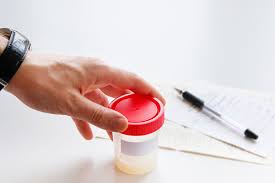 If you are getting your pills from a fertility clinic or health center, they usually offer medication monitoring. This is to ensure that they monitor your progress all through to see the effectiveness of the pills. You are usually asked to return after two weeks for lab testing and a clinic visit to make sure that the medication is working as it should.
If you are getting your pills from a fertility clinic or health center, they usually offer medication monitoring. This is to ensure that they monitor your progress all through to see the effectiveness of the pills. You are usually asked to return after two weeks for lab testing and a clinic visit to make sure that the medication is working as it should.
 Manufacturers use various features in applications when they need high reliability. One of the ways is by use of redundant load paths. An example of load path redundancy is using more than two ball circuits within a ball nut. It increases reliability since if one circuit malfunctions, the screw will still operate. Also, screw threads have multiple starts to provide redundancy as they allow circuits of balls to work in each path.
Manufacturers use various features in applications when they need high reliability. One of the ways is by use of redundant load paths. An example of load path redundancy is using more than two ball circuits within a ball nut. It increases reliability since if one circuit malfunctions, the screw will still operate. Also, screw threads have multiple starts to provide redundancy as they allow circuits of balls to work in each path.
 The main reason you may be struggling with weight loss could be because you cannot control your food cravings. For instance, eating a piece of cake after lunch may seem like a neat way of satisfying your sugar cravings. However, when you realize the number of calories and sugar you are consuming in that one piece of cake, you will note that it is not the best idea. Nonetheless, weight loss supplements will help you to get rid of those unhealthy and annoying food cravings. The pills contain ingredients that suppress the appetite, which reduces your calorie intake.
The main reason you may be struggling with weight loss could be because you cannot control your food cravings. For instance, eating a piece of cake after lunch may seem like a neat way of satisfying your sugar cravings. However, when you realize the number of calories and sugar you are consuming in that one piece of cake, you will note that it is not the best idea. Nonetheless, weight loss supplements will help you to get rid of those unhealthy and annoying food cravings. The pills contain ingredients that suppress the appetite, which reduces your calorie intake. Lastly, using weight loss pills is a faster way of losing weight than diet and exercising alone, encouraging you to stick to lifestyle changes. Moreover, the supplements reduce the absorption of nutrients such as fat, which means your intake of calories will be lesser per meal. However, before deciding to buy weight loss pills, you should research the product and consult your doctor.…
Lastly, using weight loss pills is a faster way of losing weight than diet and exercising alone, encouraging you to stick to lifestyle changes. Moreover, the supplements reduce the absorption of nutrients such as fat, which means your intake of calories will be lesser per meal. However, before deciding to buy weight loss pills, you should research the product and consult your doctor.…


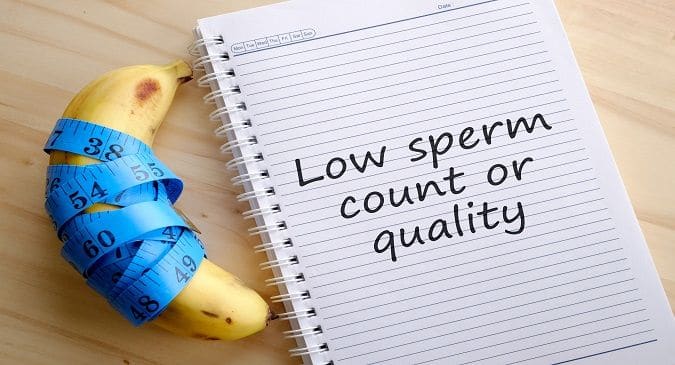
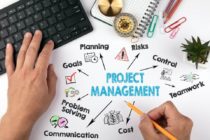


 Many artistes desire to win the music awards because of the financial package that comes with winning such awards. Awards that have significant business tokens are usually closely contested. Many artists typically use their resources to solicit for assistance from their fans especially if the winner is determined by the total number of votes cast.
Many artistes desire to win the music awards because of the financial package that comes with winning such awards. Awards that have significant business tokens are usually closely contested. Many artists typically use their resources to solicit for assistance from their fans especially if the winner is determined by the total number of votes cast. The music awards offer musicians with opportunities to expand their talents. Some prizes might grant you entry to some of the best music academies in the world. Getting an admission in such an institute is usually the dream of all musicians since they get a chance of expanding their musical talents.
The music awards offer musicians with opportunities to expand their talents. Some prizes might grant you entry to some of the best music academies in the world. Getting an admission in such an institute is usually the dream of all musicians since they get a chance of expanding their musical talents.
 Before going on to pick restaurants, pick a dish that you want to try out at the Chinese restaurant. Doing this task as the first step is important because most restaurants will have chefs and staffs from different parts of the world. They also have mastery in various dishes. Furthermore, it is in the interest of a restaurant’s profitability to have meals that are easy to prepare and whose ingredients are easy to find. Thus, you find many restaurants opting to specialize in a few delicacies instead of trying to offer everything under the sun.
Before going on to pick restaurants, pick a dish that you want to try out at the Chinese restaurant. Doing this task as the first step is important because most restaurants will have chefs and staffs from different parts of the world. They also have mastery in various dishes. Furthermore, it is in the interest of a restaurant’s profitability to have meals that are easy to prepare and whose ingredients are easy to find. Thus, you find many restaurants opting to specialize in a few delicacies instead of trying to offer everything under the sun. Some restaurants have a history of their formation and their founder. Knowing a little about this history can help you make a choice. Most restaurants want to sustain their traditions as part of their brand building attempts. Thus, you can make your pick based on the restaurant history you read or hear from people. If you notice a particular Chinese restaurant appearing in several mentions about a specific food, then your best bet is that there is something worth checking out.
Some restaurants have a history of their formation and their founder. Knowing a little about this history can help you make a choice. Most restaurants want to sustain their traditions as part of their brand building attempts. Thus, you can make your pick based on the restaurant history you read or hear from people. If you notice a particular Chinese restaurant appearing in several mentions about a specific food, then your best bet is that there is something worth checking out.
 The location of your apartment or business is critical when you are choosing an internet service provider. Certain providers do not have coverage in given areas. Look at your location and find out which internet service providers have coverage in the area. Businesses in the cities usually have more options as compared to those in the rural areas.
The location of your apartment or business is critical when you are choosing an internet service provider. Certain providers do not have coverage in given areas. Look at your location and find out which internet service providers have coverage in the area. Businesses in the cities usually have more options as compared to those in the rural areas. Since everything has to be done within budget, also consider the cost of the internet. Depending on the package and the internet service provider, the cost of the internet can range between $20 and $400 per month. The internet cost for businesses is usually much more than those of the households. Businesses prefer high speeds because it is easier to teleconference and receive and send emails with much ease.
Since everything has to be done within budget, also consider the cost of the internet. Depending on the package and the internet service provider, the cost of the internet can range between $20 and $400 per month. The internet cost for businesses is usually much more than those of the households. Businesses prefer high speeds because it is easier to teleconference and receive and send emails with much ease.
 Another factor to look out for is whether you are traveling alone or not. This is critical especially if you are traveling in certain countries. For example, in countries like Saudi Arabia, it is not recommended to travel all alone; since women are escorted by their male counterparts in public.
Another factor to look out for is whether you are traveling alone or not. This is critical especially if you are traveling in certain countries. For example, in countries like Saudi Arabia, it is not recommended to travel all alone; since women are escorted by their male counterparts in public. Accommodation is a crucial factor when it comes to choosing a holiday destination. Since shelter is a basic human need, you need somewhere safe where you will camp during the night or when the weather is not so friendly. The type of accommodation you secure will depend on the number of people you are traveling with. If you are visiting with your family, it might be advisable to book a villa.…
Accommodation is a crucial factor when it comes to choosing a holiday destination. Since shelter is a basic human need, you need somewhere safe where you will camp during the night or when the weather is not so friendly. The type of accommodation you secure will depend on the number of people you are traveling with. If you are visiting with your family, it might be advisable to book a villa.…